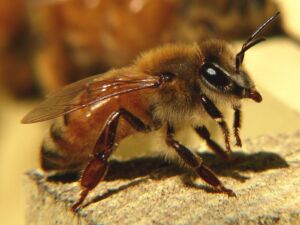News
Danish bees struggling to survive
This article is more than 10 years old.
Modern agricultural practices and climate change threatening important insects

Danish bees are disappearing at an alarming rate (photo: Ken Thomas)
The buzzing of summer bees is less audible this year. The very existence of some of the 286 species of bees that frequent Denmark is threatened.
“It’s bad,” Henning Vang Madsen, a research technician at the biological institute at the University of Copenhagen, told DR. “In addition to honey bees, wild bees are also threatened. Several species have already disappeared.”
Too much grass
According to Madsen, at least 25 species have disappeared – a problem that started in the 1950s when the use of fertilisers started to become more common.
“We have lost a lot of hedges and have more grass than open meadows, so there are fewer flowers and habitats for bees,” he said.
Madsen added that climate change is also reducing the numbers of bee-friendly plants.
Untidiness helps
Homeowners could make a huge difference, Madsen contends.
“Leave some spaces in the garden with twigs and scraps of wood that the bees can use to build nests. Uncultivated areas are good for the bee population,” he said.
Madsen also suggested that gardeners plant plenty of flowers to provide nourishment for the bees over the summer.










































